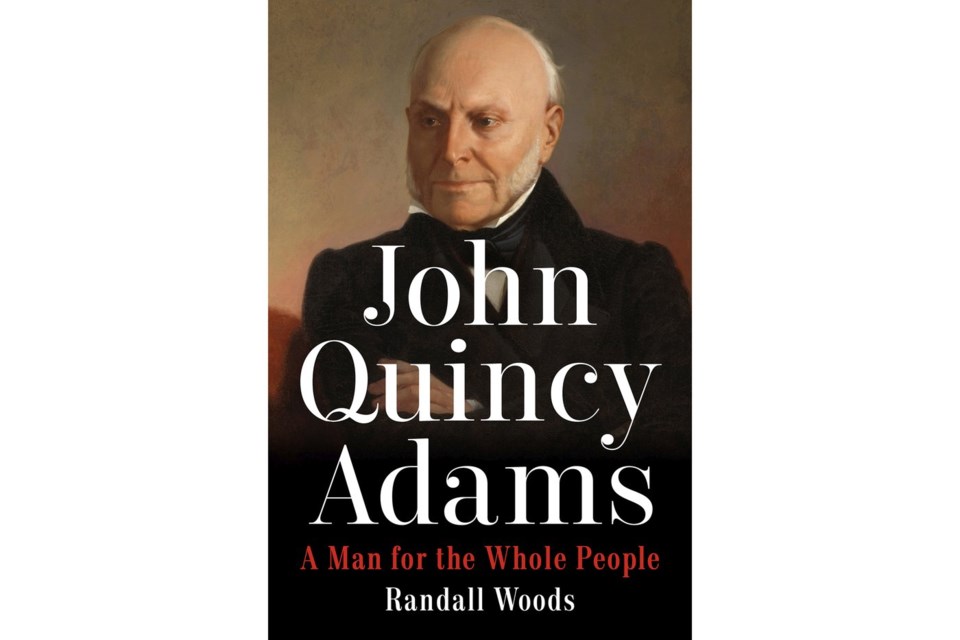To be clear, Randall Woods' “John Quincy Adams: A Man for the Whole People” is not a leisurely read designed for the beach or airport. Clocking in at more than 700 pages, Woods' biography of the sixth president is massive in both length and scope.
But that's the type of book Adams deserves for a life and legacy that stretches well beyond his time as commander in chief and includes his years as a diplomat, senator and congressman. Readers could come away from the book feeling as though it could have easily been a multivolume series.
Woods, a history professor at the University of Arkansas, expertly profiles a president whose life was defined by contradictions. Much like his father, Adams despised politics but spent his life entrenched in public service. His championing of the nation's expansion came at the cost of allowing the spread of slavery.
The most compelling portions of the book, in fact, focus on his years outside the White House. This includes his post-presidency years in Congress where he became an ally — albeit a tenuous one — of abolitionists and an outspoken opponent of the “gag rule” in the House that prevented the discussion of slavery.
It also displays that influence that Adams' father, the nation's second president, and the other Founding Fathers had on his view of the country and public service.
The biography sheds light on Adams' relationships with figures throughout history, from Andrew Jackson to Daniel Webster. But what's even more enlightening is his personal relationships, especially with his family, as Woods demonstrates the strain that his years of service had.
Woods uses Adams' life to also tell the story of the country's evolution, and his descriptions of life in the nation's capital are some of the most entertaining. This includes a tale of Adams as president nearly drowning in the Potomac River, where he would swim regularly.
In his later years, the book describes, Adams exchanges letters with a British actor about the merits of William Shakespeare's play "Hamlet." As Woods writes, Adams “identified completely with Shakespeare's fallen angel” and viewed the play as a cautionary tale for the country.
Whether or not readers view Adams' life as a cautionary tale, Woods' biography is a sweeping look not just at his life but at the early years of the republic.
___
AP book reviews: https://apnews.com/hub/book-reviews
Andrew Demillo, The Associated Press




